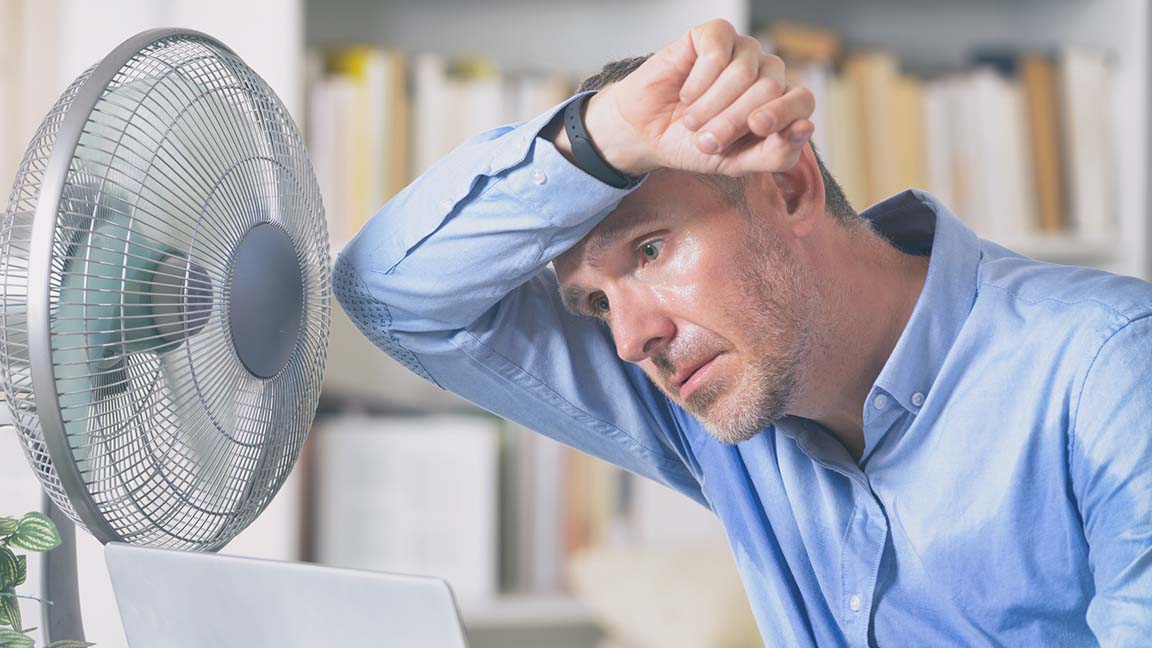Sweating may not be particularly pleasant, but it’s critical to keeping your body cool and can also be a barometer of your overall health.
Exercise, anxiety, hormonal changes, spicy foods, alcohol, medications and illnesses can cause you to sweat. It’s your body’s way of preventing you from overheating when your core temperature begins to rise.
“It’s a normal physiological response to help us regulate ourselves,” says Tidelands Health family medicine physician Dr. Sean Nguyen who practices at Tidelands Health Family Medicine at The Market Common. “It is an indicator that we are stressed in some way – whether it’s because we’re exercising, responding to high temperatures or fighting an illness.”
So how does the process work? When your body begins to heat up, blood flow to the skin increases and activates your sweat glands. The sweat glands produce mostly water and other minerals from the body such as sodium, ultimately leading to beads of sweat on the skin. The skin’s moisture interacts with the air to initiate the cooling process, says Dr. Nguyen.
Sweating can also help remove harmful toxins from your body, increase your metabolic rate and improve the health of your skin.
“Sweating, especially when you’re exercising, is a beneficial process,” Dr. Nguyen says.
Not only does perspiring act as a temperature regulator, it can also be a barometer of your health.
“If sweating profusely is a newer symptom, something has triggered it,” Dr. Nguyen says. “Be sure to talk to your physician to determine why it may be happening.”
Here are some of the things sweating can tell you about yourself and your health:
If you’re anxious about something or feeling overwhelmed, your sweat glands can respond with an overproduction of perspiration.
If you notice your sweat smells a little off and you’re feeling a bit under the weather, you might be fighting an illness. Sweat glands can respond to an amped-up immune system by increasing sweat production.
Hormonal changes, an increase in blood flow and a revved-up metabolism from pregnancy can increase sweating. An expectant mother may experience night sweats during the first trimester.
If you exercise heavily and find that your sweat leaves white residue on your body or stings your eyes, you may need to increase your sodium intake to compensate for the amount of sodium your body is releasing when you sweat. Consider drinking a sports drink when you exercise or find another way to replenish your sodium levels.
Drinking caffeine stimulates the body’s central nervous system, which can activate your sweat glands and cause you sweat. If you notice a correlation, consider avoiding the second cup of coffee or switch to decaf instead.
Intense sweating that isn’t normal for you may indicate a problem. Some conditions such as diabetes, thyroid malfunction, heart disease and menopause can cause excessive sweating. If you’re concerned that your sweating could be a symptom of something more serious, have a discussion with your doctor or, in case of emergency, call 911.
Excessive sweating in specific areas of your body such as your face or underarms that isn’t related to illness or stress could be caused by a condition called hyperhidrosis. Fortunately, the condition can be treated with medication, medical antiperspirants, Botox injections and other approaches. In severe cases, sweat glands can also be removed.
“The biggest takeaway is that if you’re concerned that your sweating symptoms aren’t normal, have a discussion with your doctor,” says Dr. Nguyen. “The causes of excessive sweating can be benign or indicative of something more serious. If it’s worrisome or makes you feel uncomfortable, talk to your doctor. We see it all the time and can recommend solutions and treatments to help you manage your sweating.”
